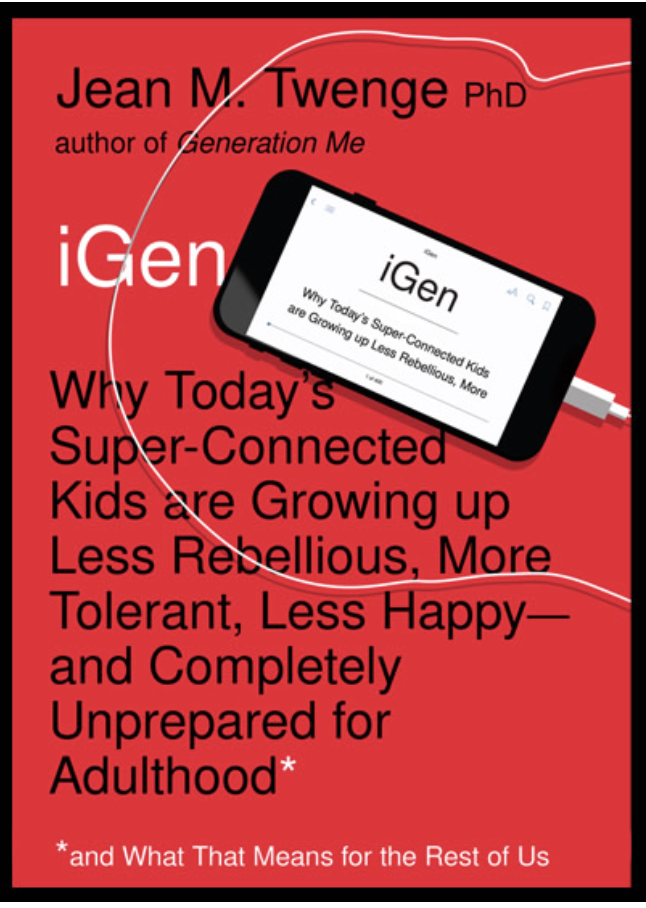Connection and Compassion – The Keys to Improving Youth Mental Health, by Sara Myers
/When asked anonymously, 22% of middle school students in Los Angeles Unified School District reported seriously contemplating suicide during the previous year. The Volunteer Center team learned this fact while researching the rise in anxiety, stress, panic, depression and suicide in youth as part of our strategic planning process. No matter how many times I read that statistic, it still shocks me. Many of us remember middle school as a time for learning pre-algebra equations, building our social circles and exploring after-school clubs. For me, and many others, it was also a time for first crushes, fighting and making-up with friends, and admiring the “in-crowd” from afar. But the thought that, if I were in middle school today, two out of 10 of my peers would be considering ending their life is heartbreaking.
For today’s youth born after 1995 – nicknamed “iGen” by Dr. Jean Twenge, a professor of psychology at San Diego State University who has been studying generational differences for 30 years – the school experience has become much more serious. Youth today are facing an unprecedented mental health crisis with levels of depression and suicide that are unlike anything we have previously encountered. We recently held community input panels with local mental health professionals, parents/caregivers, youth and members of the faith community, asking them to help us prioritize the reasons for the increase. The majority of the participants identified excessive screen time and social media addiction as the top issue. Youth are spending an average of 6-9 hours a day on screens, not including time spent for school. A majority are also sleep-deprived, caught-up in the competitive college “arms race,” and trying to live up to expectations in a culture of perfection – all without the tools they need to effectively cope with their emotions. This has led to a 100-168% increase in requests for mental health services at local universities.
Typically, when most people hear “excessive screen time and social media usage,” they focus on the negative content that youth are viewing, such as violent games, bullying and suggestive materials. However, one could argue that previous generations also dealt with these items, just in different formats. Instead of focusing on the content youth are viewing on the screen, at the Volunteer Center, we are more concerned with what the youth are missing off the screen, such as the face-to-face interactions and other elements of emotional development our youth and families need. We are missing important moments of connection while our eyes are glued to our phones, tablets, computers and televisions. Studies have shown that excessive screen time usage is inhibiting the ability for the young brain to develop empathy and compassion, breaking down the parent/child attachment bonds, and blocking the ability to read emotions and social cues. These are all skills youth must have in order to develop healthy emotional and social wellness, and I think we can all agree that compassion and kindness are especially important traits that we need promote right now.
Local mental health professionals have shared that they feel like they’re caught in front of a fire hose, drowning under the increased demand for counseling services. To offset the shortage in licensed professionals, our community desperately needs more options for informal care and self-care, which is where organizations like ours must assist. We are in the process of developing a parent education program, a teen connection group, a community awareness campaign, and for our first major event, we are proud to partner with Torrance Unified School District and South Bay Families Connected to bring Dr. Jean Twenge to Torrance to speak to local families about her groundbreaking research on teens and screens on Thursday October 18 at 6:30 p.m. in the Auditorium at Torrance High School. Join us to learn more about what influences are shaping iGen, including the important link between screen time and mental health. Copies of Dr. Twenge’s book, “iGen: Why Today’s Super-Connected Kids Are Growing Up Less Rebellious, More Tolerant, Less Happy–and Completely Unprepared for Adulthood,” will be available for purchase at the event. Books can also be ordered online – 10% of all book sales through this link will be donated to help fund this event. We also want to acknowledge and thank our friends at Honda and Burkley Brandlin Swatik & Keesey LLP for providing financial support to make this event possible.
We have depended on Dr. Twenge’s book to aid our research and we’ve quoted it in every conversation we’ve had about these topics. We strongly believe that the more parents and families know about the mental health crisis and the link to screen time, the better decisions we can make for our families. We hope you will join us for this important event. Click here for complete details and a link to register for the event to guarantee your seat!





